03 October 2025
Meeting "Refugees and Migrants in Our Common Home: Mobilizing Academic Communities for Action"
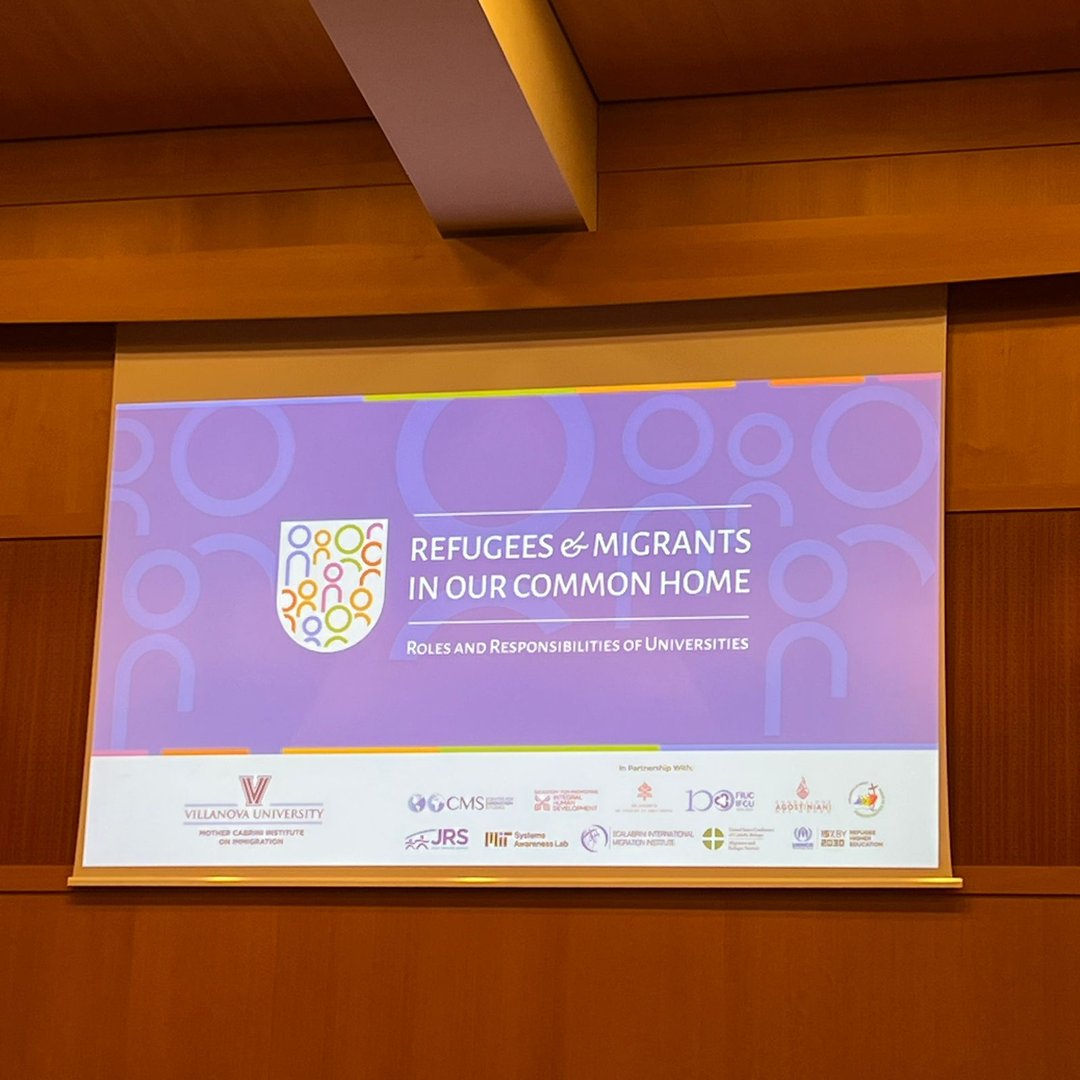
From October 1 to 3, the Augustinianum Patristic Institute hosted a series of meetings entitled Refugees and Migrants in Our Common Home: Mobilizing Academic Communities for Action, organized by Villanova University and the Mother Cabrini Institute on Immigration. The Superior General, Sr. Maria Eliane Azevedo Da Silva, the Assistant General, Sr. Patricia Godoy, Sr. Tatiana Advokushina, Sr. Joseane Cabral Soares, Sr. Yolanda Flores, and Javier Ramirez-Baron, Executive Director of Cabrini Immigrant Services, participated in these meetings.
Throughout the three-day meeting, sculptor Timothy Paul Schmalz, creator of Angels Unawares in St. Peter's Square, dedicated himself to creating a bust of Mother Cabrini.
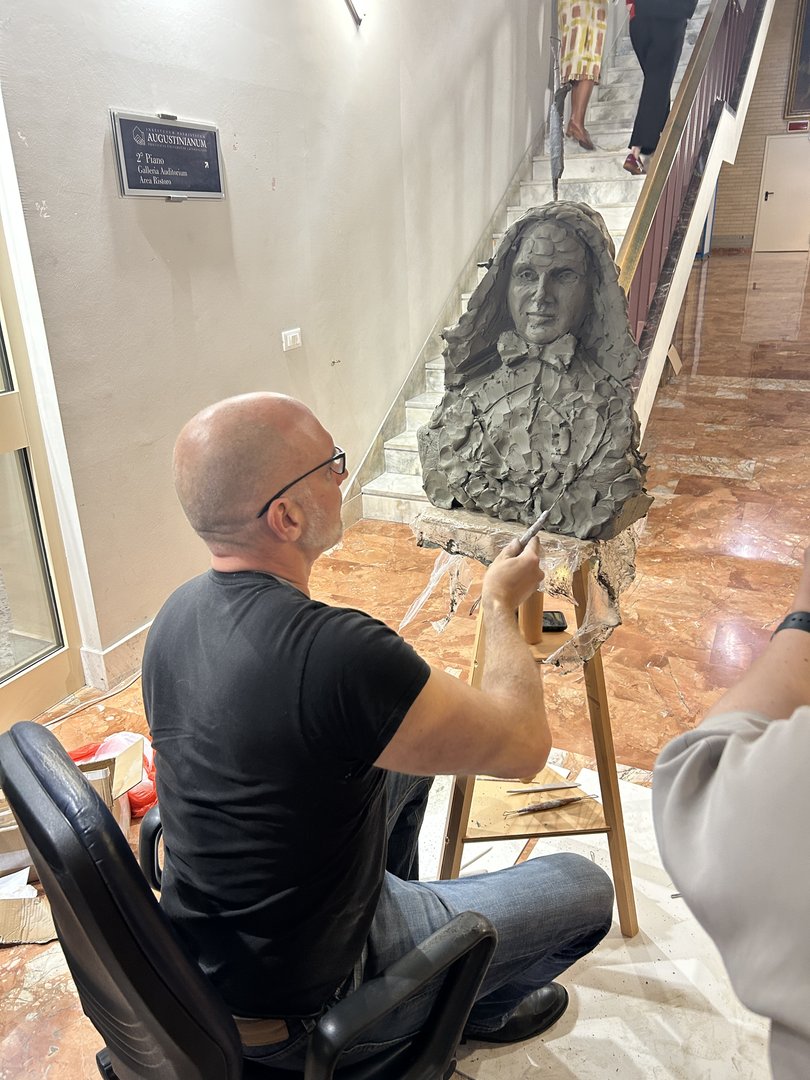
Before the series of meetings, on September 30, some conference participants visited Borgo Laudato Sì. Among others, Sr. Tatiana MSC also took part in this visit.
The general meetings, open to all attendees, were held in the Aula Magna, such as those on Wednesday, October 1, in the morning, Thursday, October 2, in the afternoon, and October 3, throughout the day. Other panels could be chosen based on the specific interests of the attendees.
Journalist Andrea Sarubbi moderated the discussions on all three days.
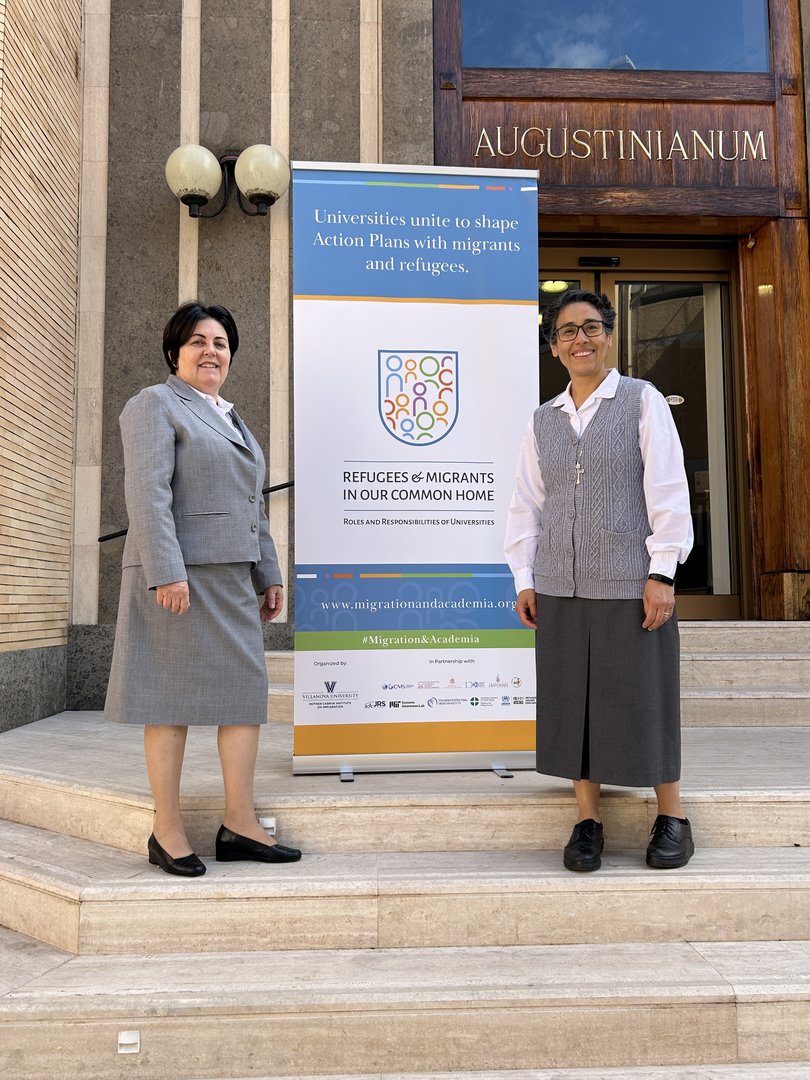
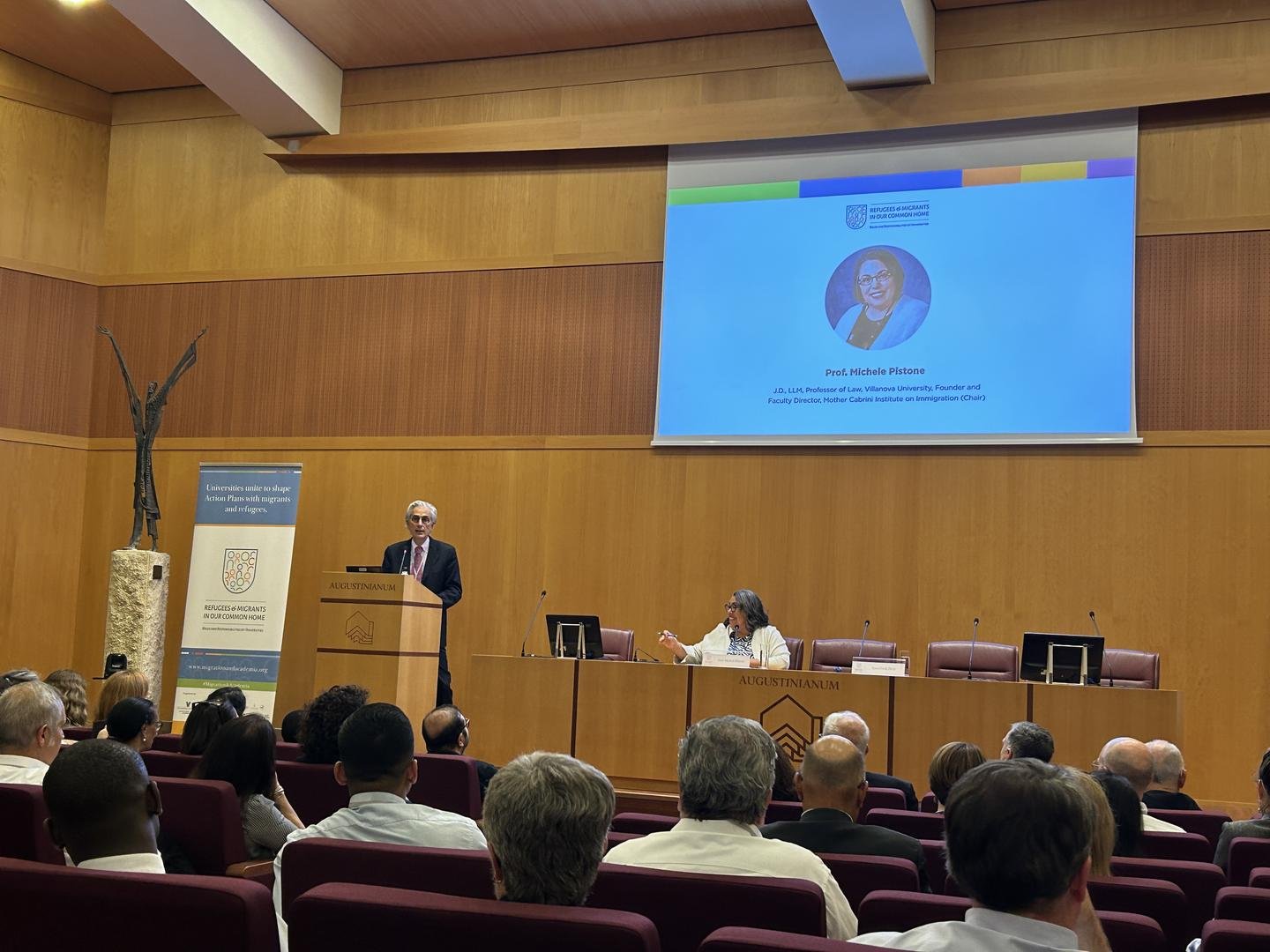
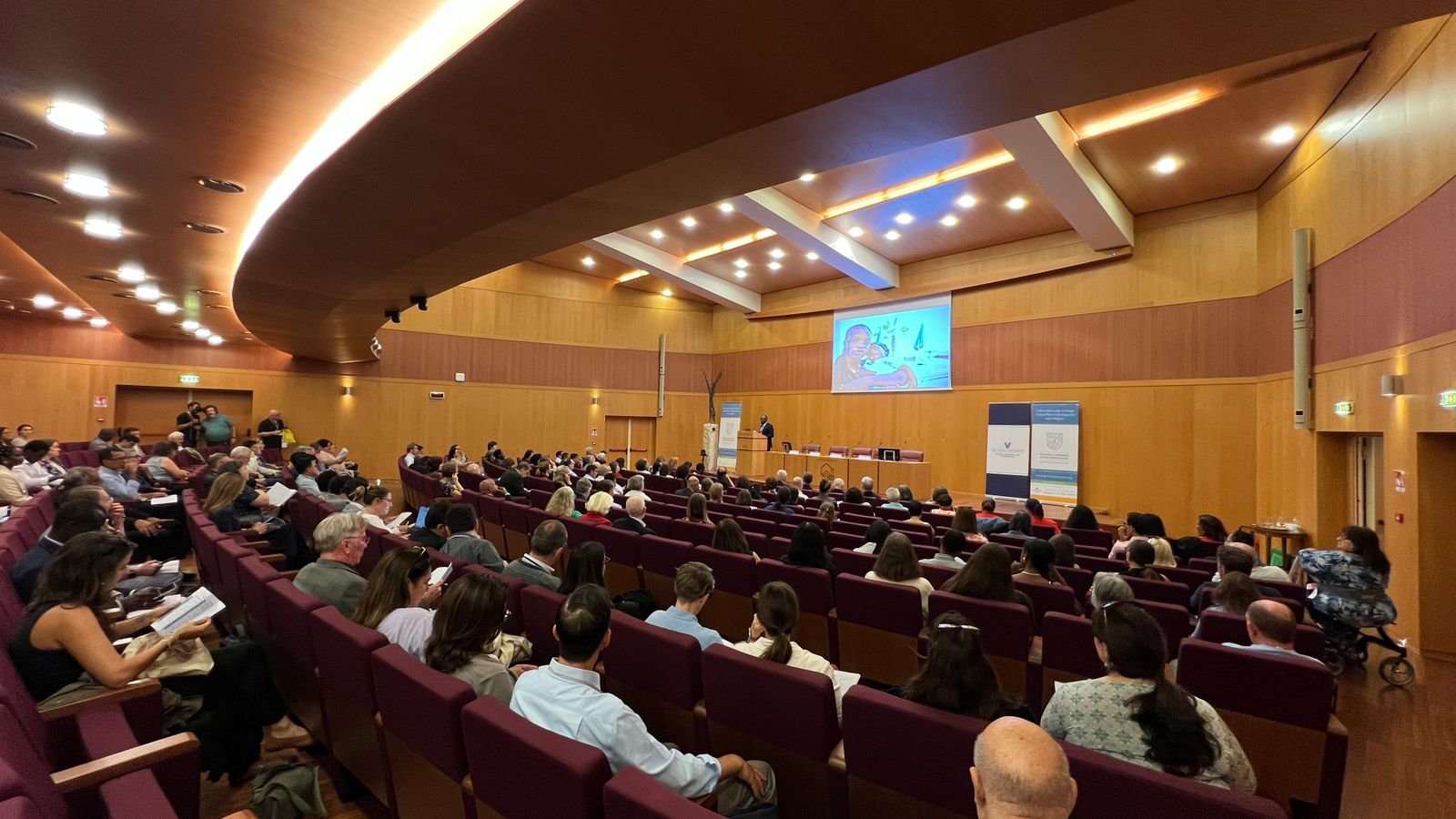
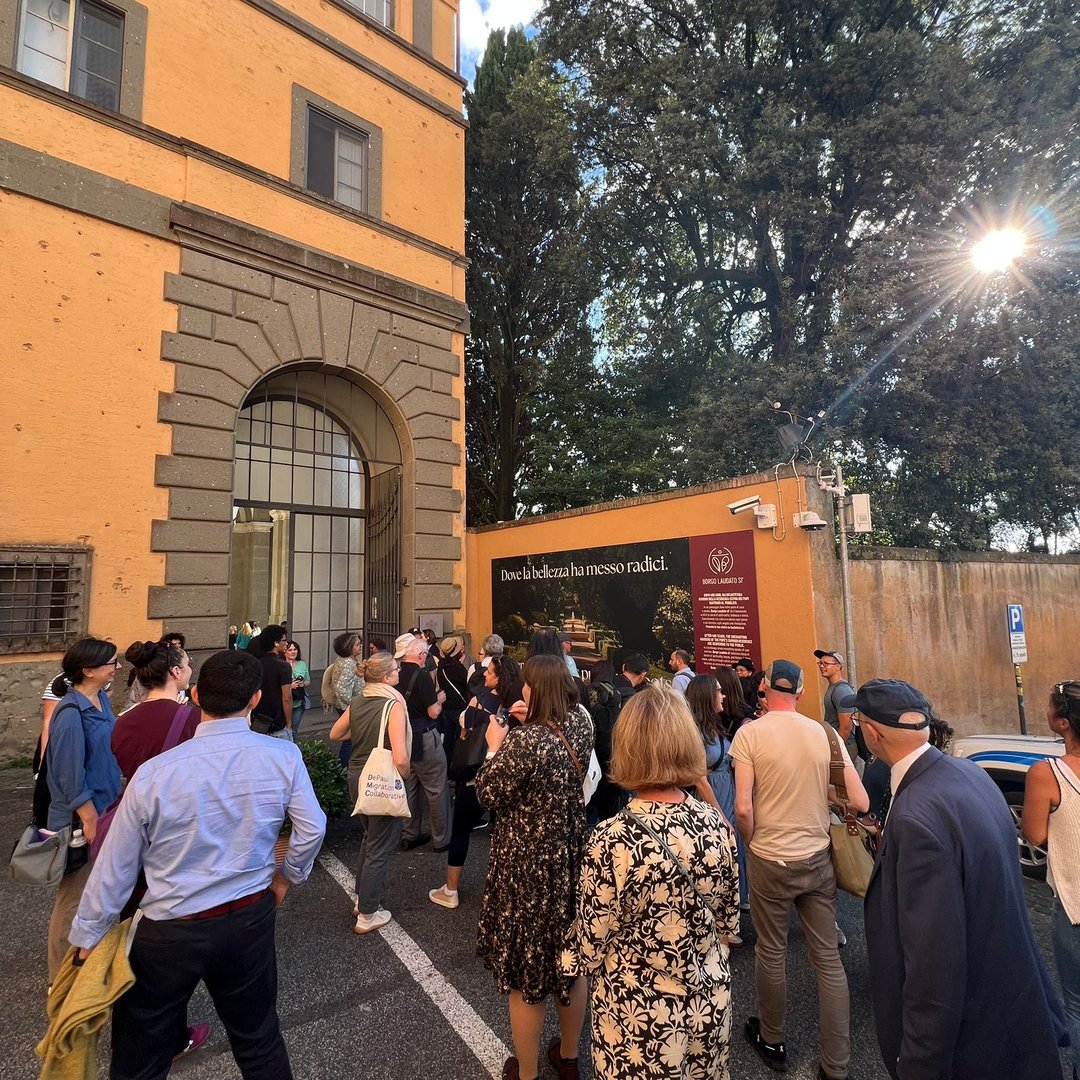
On October 1, after a performance by a solo singer, Maurice Eriaremhien from Nigeria welcomed the conference, followed by several presentations by friars of the Order of St. Augustine, including Fr. Joseph Farrell, Prior General of the Order of St. Augustine, who was present, and Fr. Peter Donohue, president of Villanova University, who joined via video link from Chicago.
"Villanova University is a university strongly focused on working with migrants," said some Augustinian friars during their welcome remarks, adding that the work they have begun is based on the words of Pope Francis, and is therefore a promise that has been turned into action. The Augustinians emphasize that they are the first missionary congregation to work in that territory. In fact, the Augustinian order, with its missionaries, was the first to settle in Pennsylvania.
This university, and consequently, Mother Cabrini Institute for Immigration based within it, works with the aim of sharing what God has given us, in order to foster greater openness, break down mental barriers, and experiment with cooperation, where everyone can feel that they are both actors and cooperators.
Various speakers emphasized how the concept of community must be at the heart of human encounters, sharing our common home, always keeping in mind compassion for those who suffer and care for the weakest.
Love is God's law was affirmed during several speeches, on various occasions.
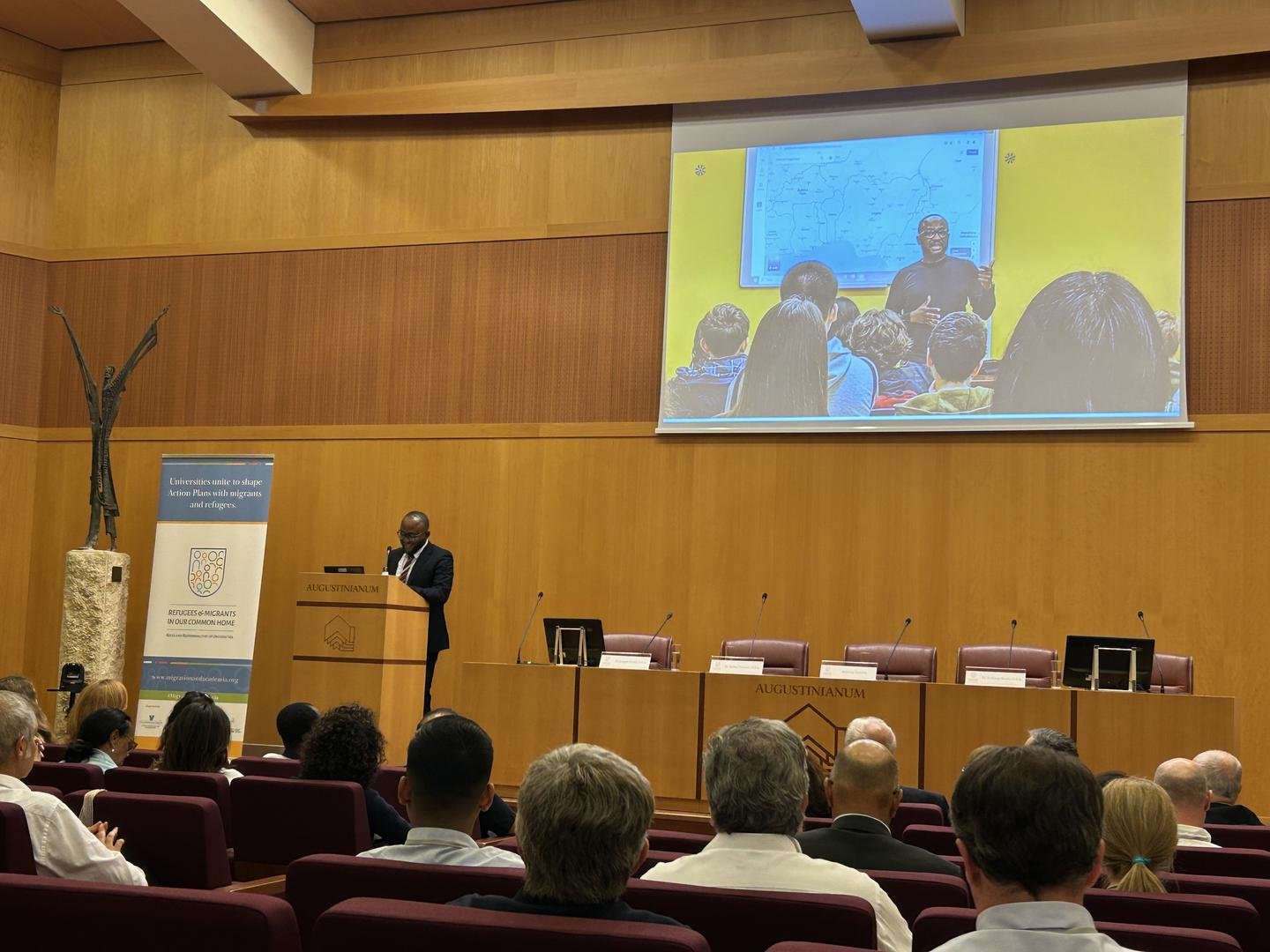
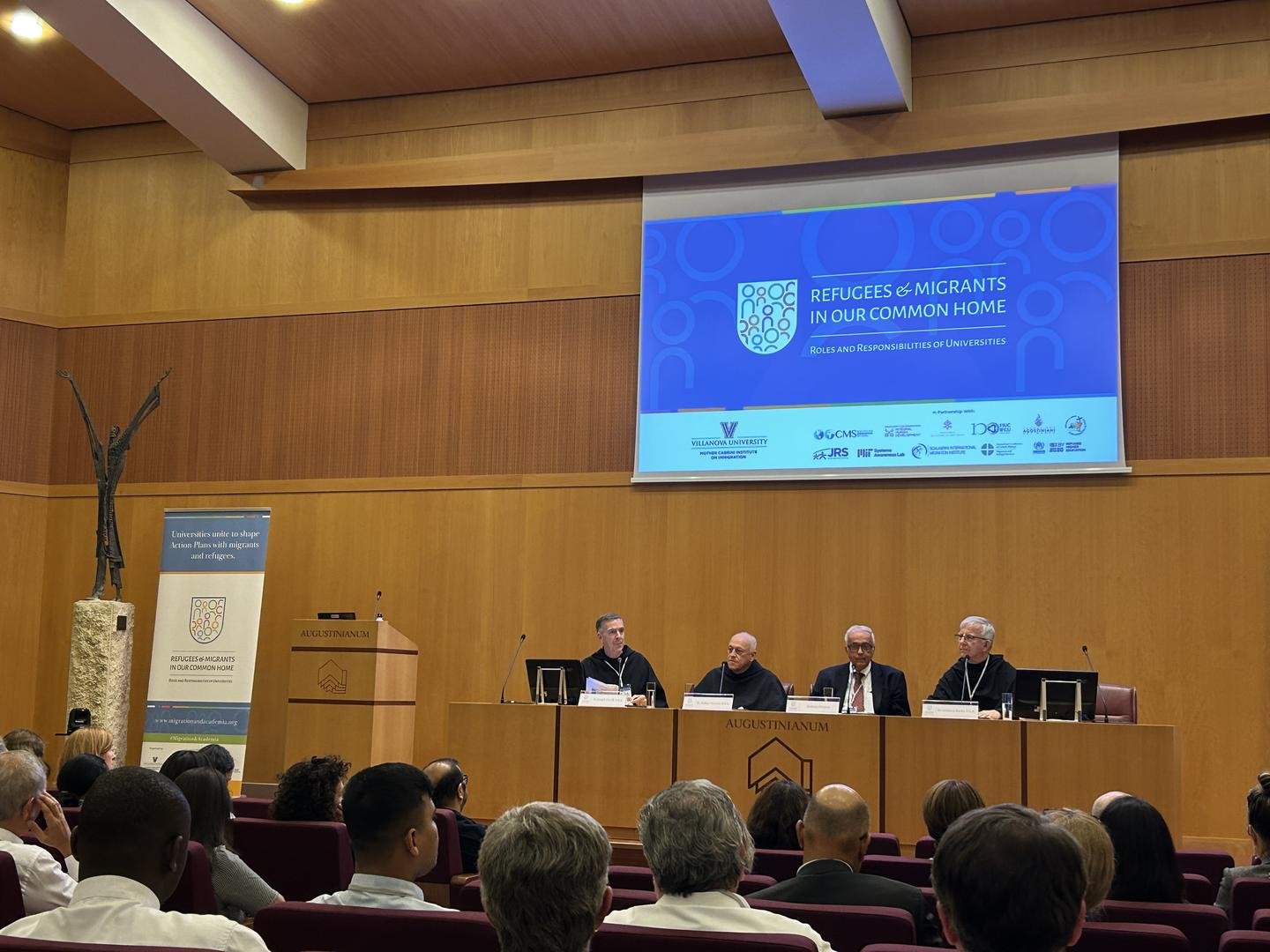
Prof. Michele Pistone, Founder and Dean of the Madre Cabrini Institute on Immigration, affirmed the urgency of rebuilding or, in some cases, building a solid community dimension and emphasized that Hope is an orientation that accompanies our daily choices.
This was followed by a speech by Lana Cook, Associate Director, who highlighted how synodality emerges from different levels and fields of work and includes the importance of learning from the past, looking to the future, and addressing the needs of the present. She reiterated that many people are working every day in this direction. It was also very nice to remember that this series of meetings was organized before the Jubilee of Migrants, in this jubilee year dedicated to Hope.
The afternoon session began with a presentation by Rabia Nasimi, Refugee Advocate and Policy Advisor to the British Government, who emphasized three key words of great importance: identity, hope, and belonging.
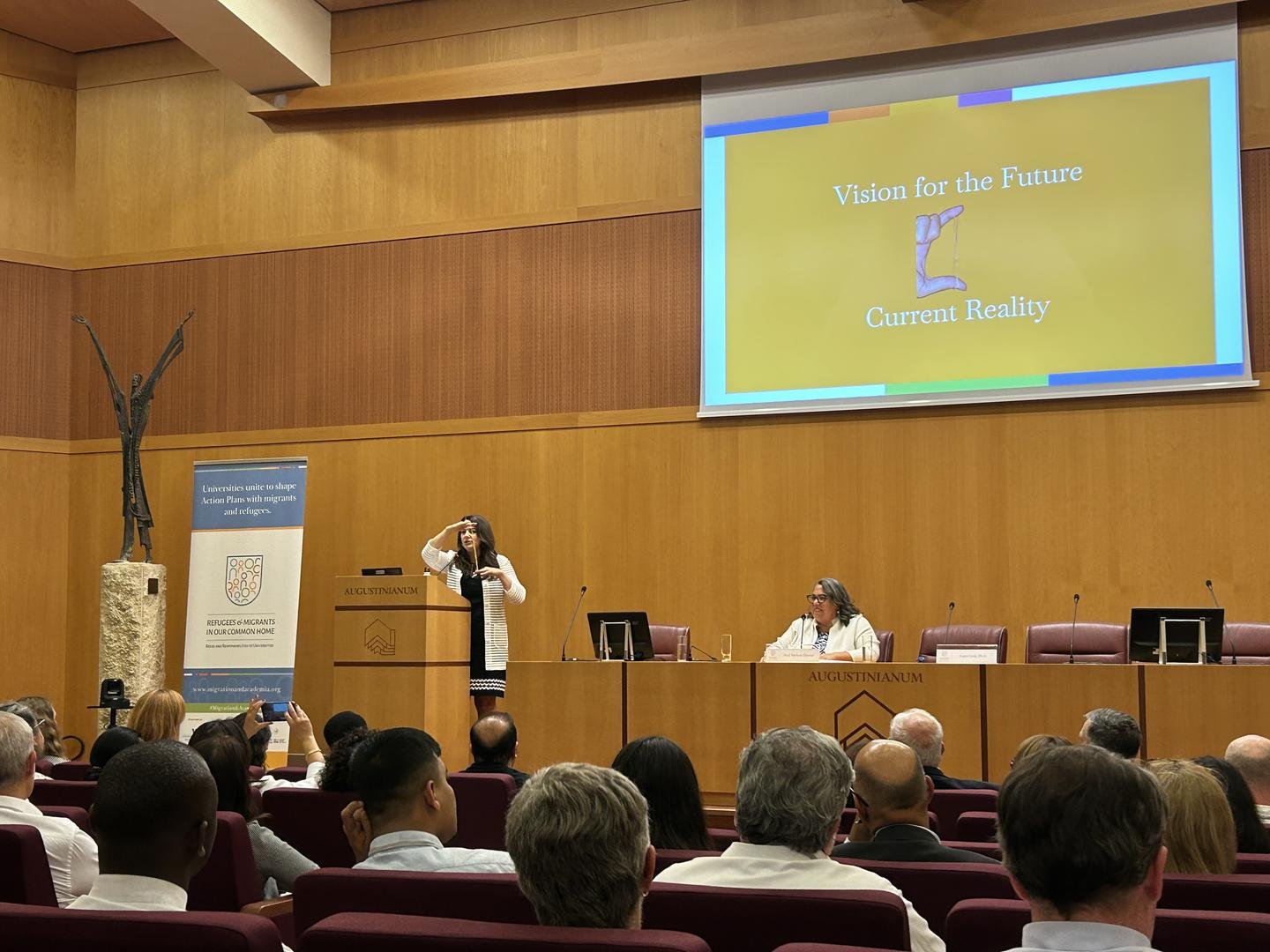
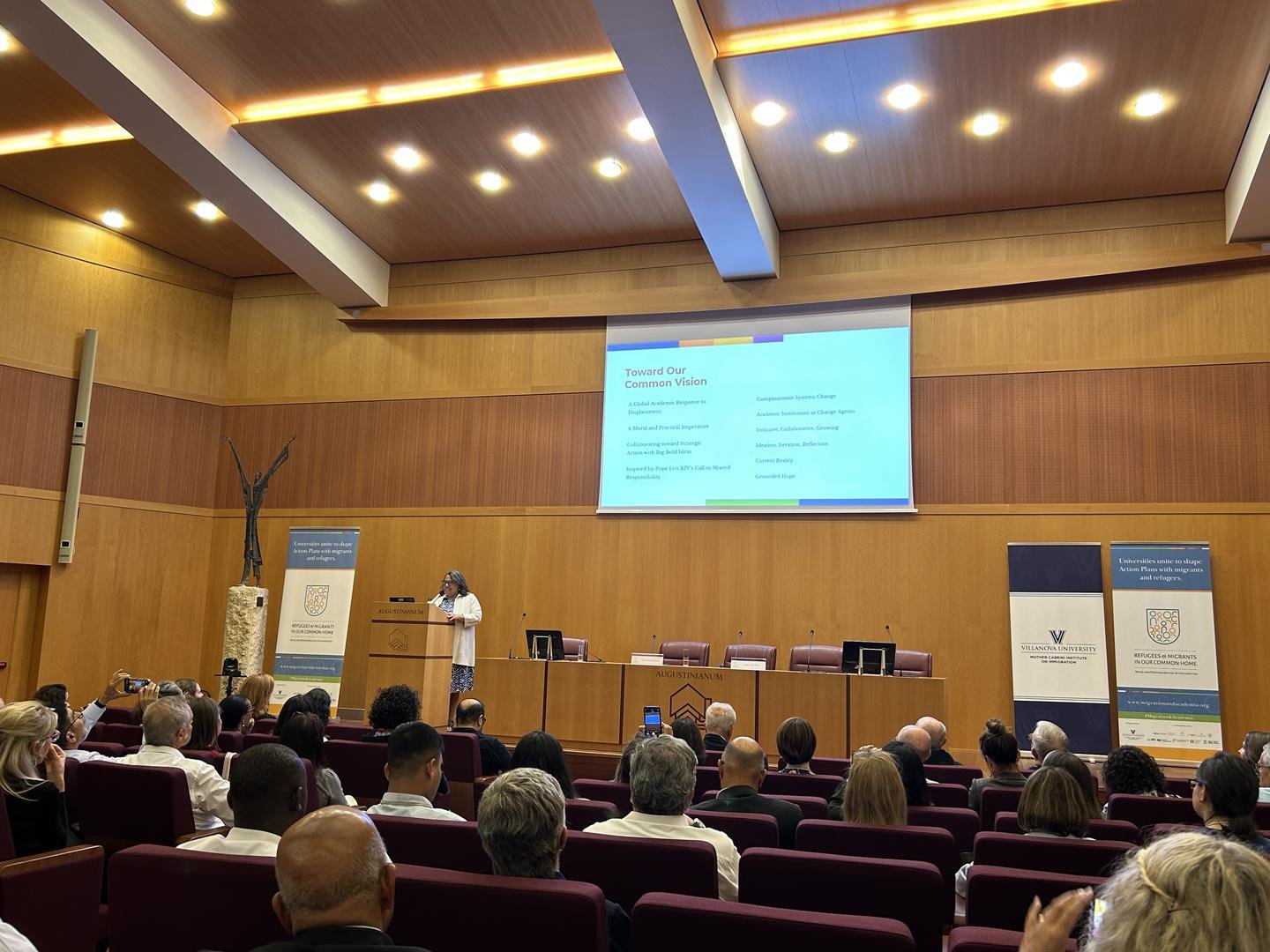
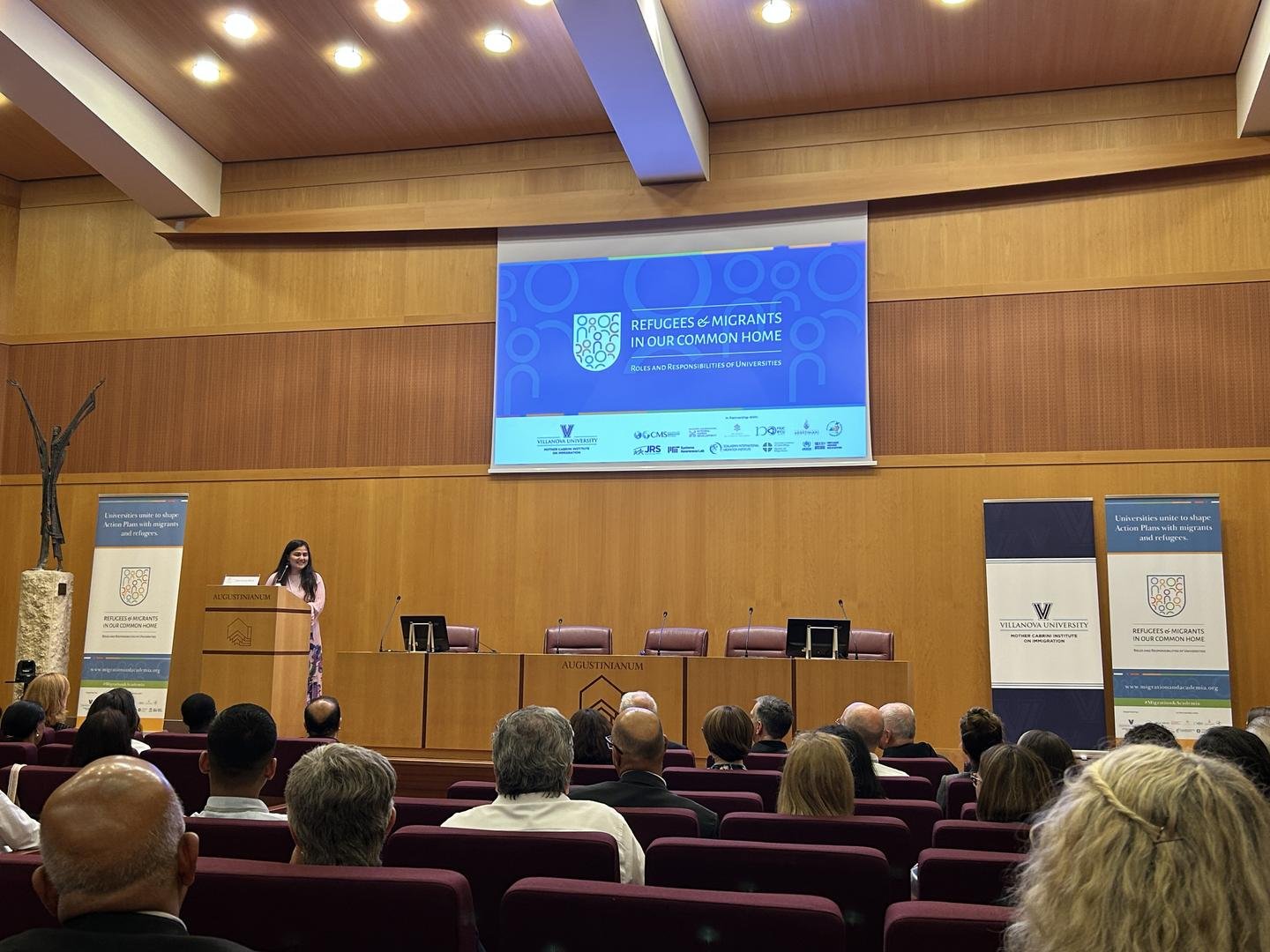
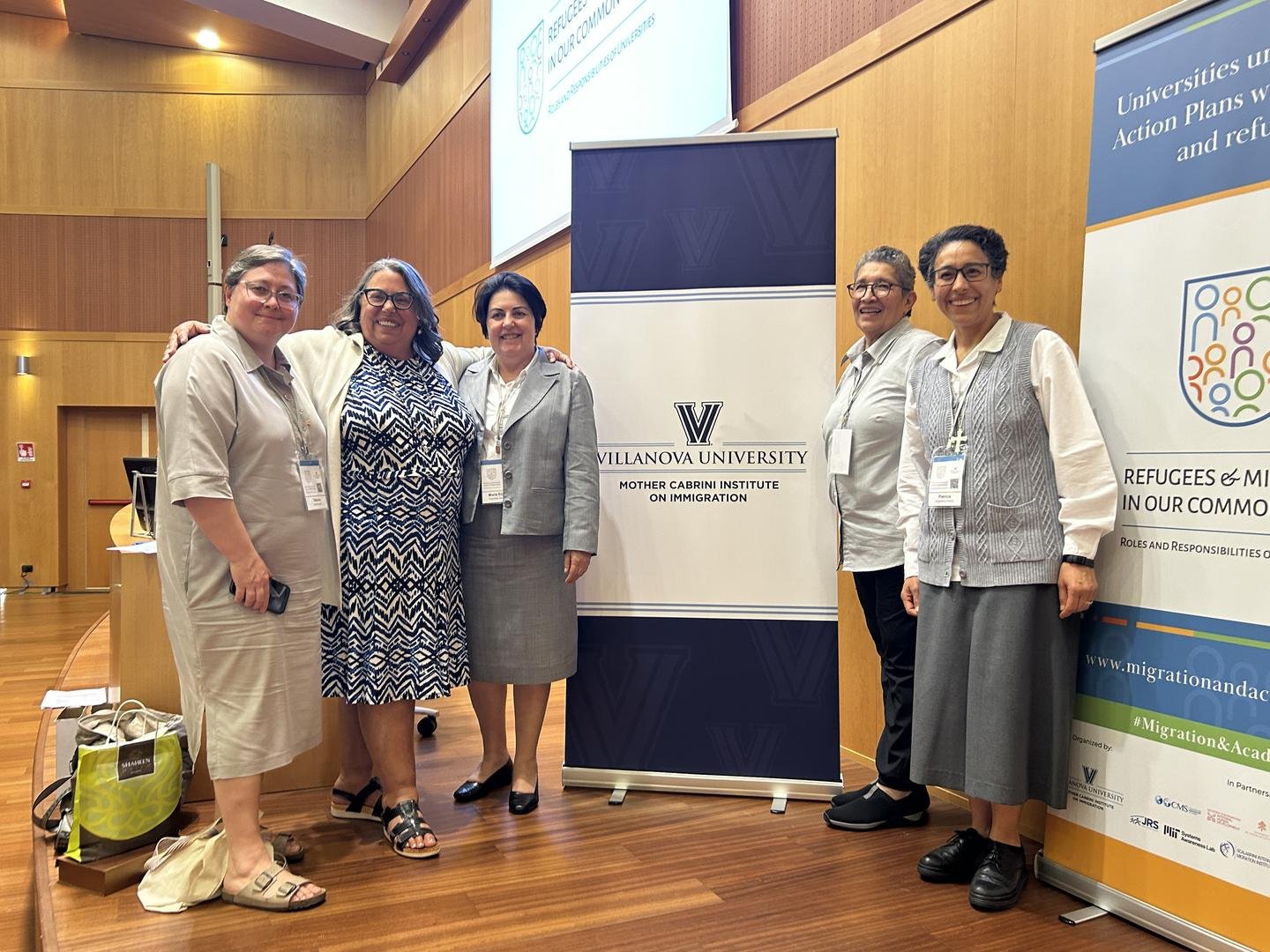
Professor Massimo Faggioli, Professor of Historical and Contemporary Ecclesiology at the Loyola Institute at Trinity College Dublin, reiterates how Pope Francis wanted migrants not only to be welcomed but also accompanied and promoted; in short, to carry forward what is defined as "theology of hope in action."
During several speeches, it emerged that Villanova University is a concrete example of how universities can become spaces of support for migrants and refugees.
A space for welcoming migrants and refugees that encompasses various dimensions: from listening to crowdfunding. Collaboration is another point of considerable importance. Integration and integrity, combined with knowledge, are among the strengths of these academic institutions.
In the afternoon, in the Minor Hall, during the panel discussions on the theme "Voices of Immigrants," the dimensions of hospitality, advocacy, personalized attention, and reciprocity were explored in depth. We listened to presentations by Alberto Ares (Hospitality: Love in Action), Gregory Cuèllar (Arte de Lágrimas: Refugee Artwork Project), Melanie Menkevich (Service Learning through Virtual Exchanges with Community Organizations), Justin Paluku Mbunbule (Let Refugees Teach Us About Their World), and Bartholomew Sey (Migration and its Effects on Food Security).
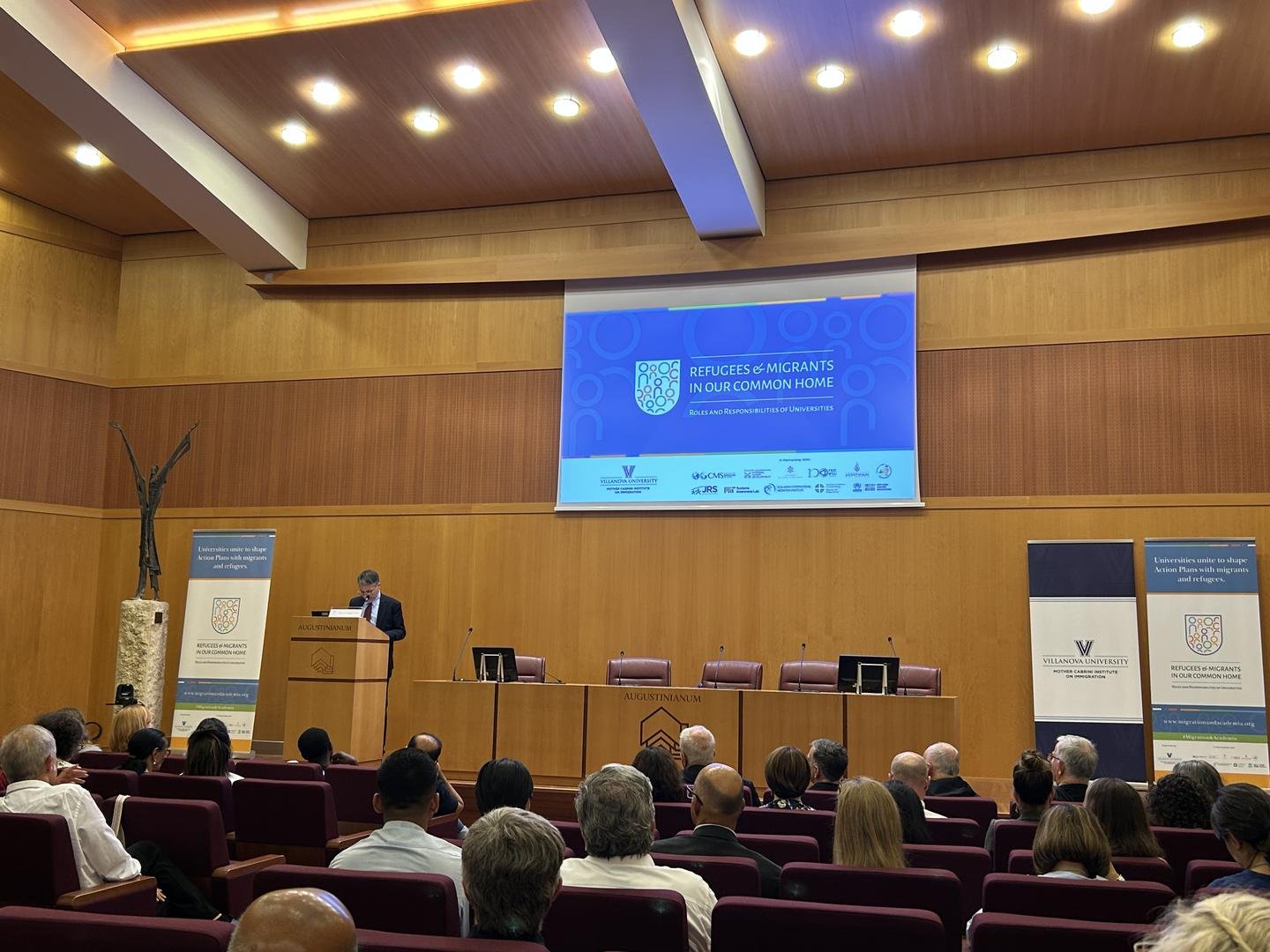
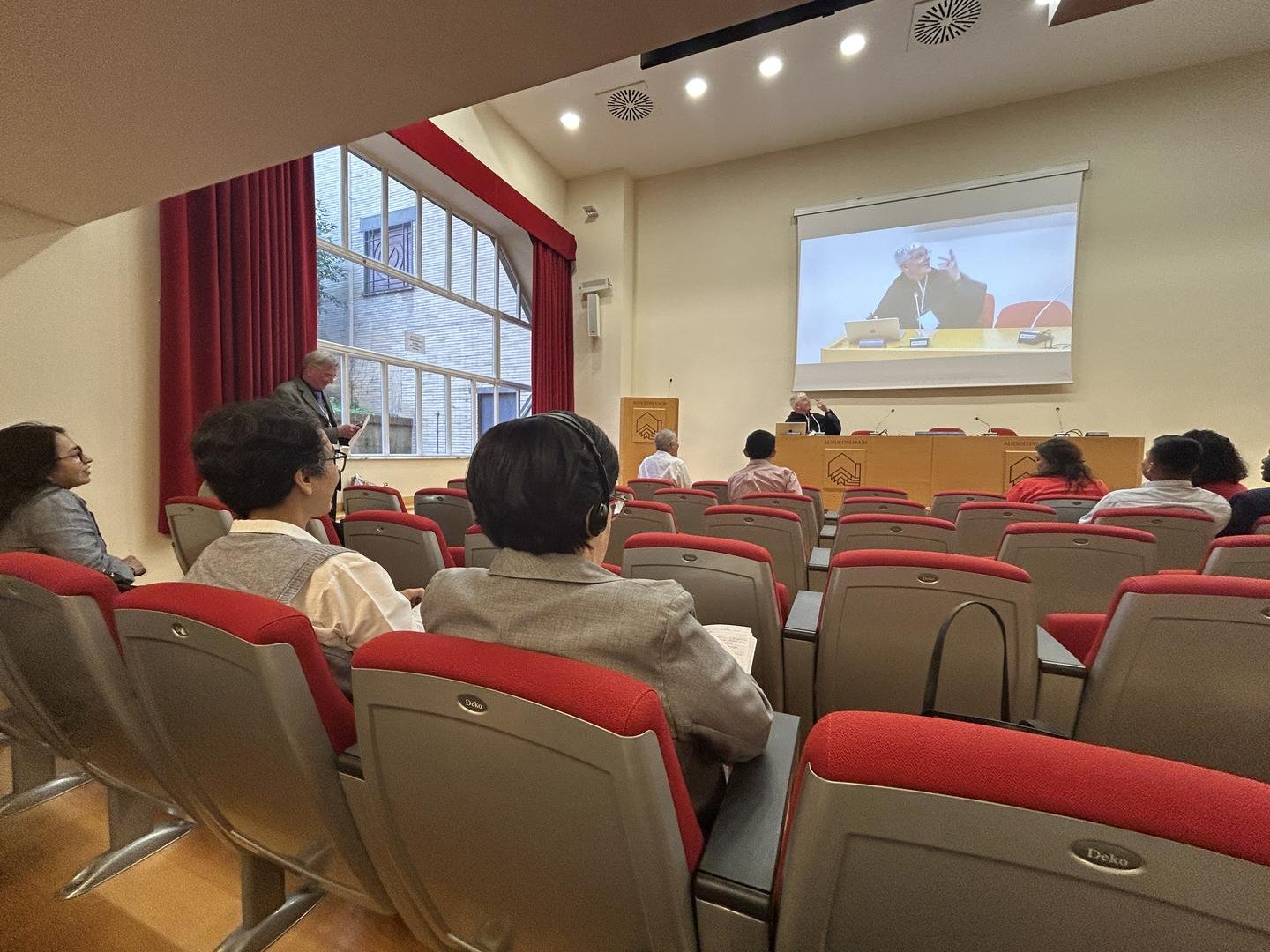
On the morning of October 2, we had the grace to participate in the audience in the Clementine Hall with Pope Leo XIV. In his speech, the Holy Father reminded us of the urgent need to oppose the globalization of indifference. He then emphasized that the pillars on which the "action plans" of academic circles for migrants and refugees should be based are teaching, research, service, and support. He suggested two themes to be integrated into these action plans: reconciliation and hope, recalling that migrants and refugees are privileged witnesses of hope through their resilience and trust in God.
https://www.vatican.va/content/leo-xiv/en/speeches/2025/october/documents/20251002-incontro-refugees-migrants.html
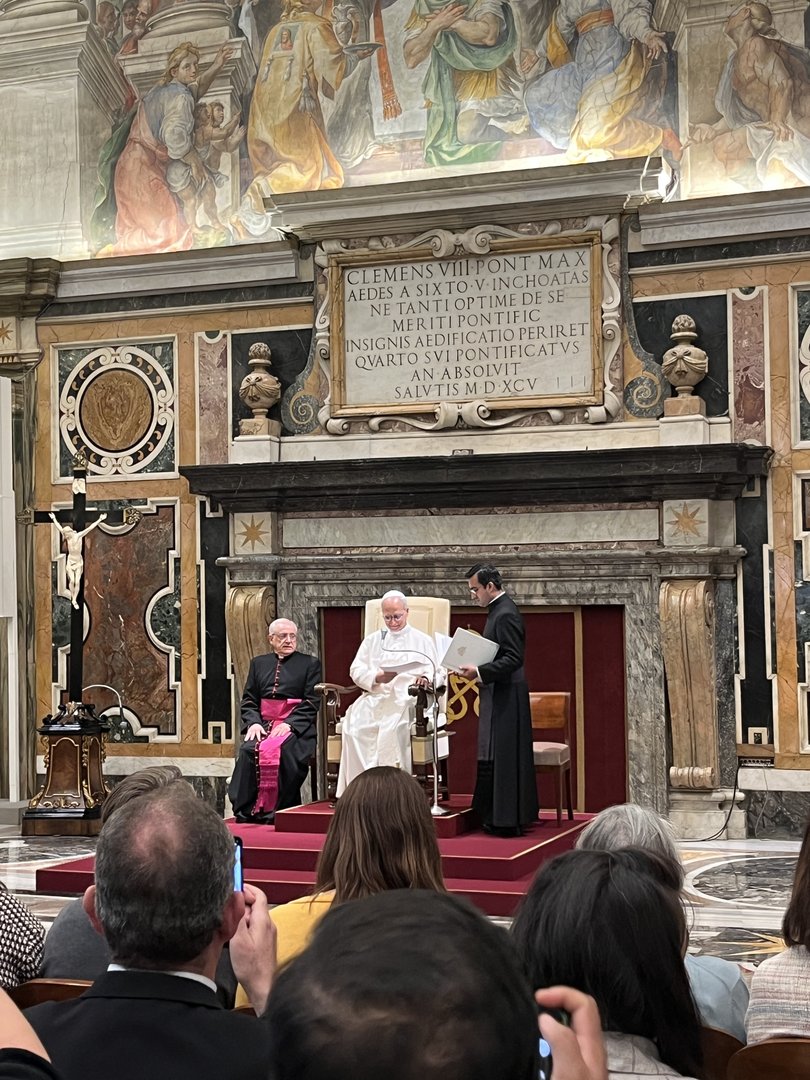
In the afternoon, the following speakers addressed the audience in the Aula Magna:
Ms. Amy Pope, Director General, International Organization for Migration (IOM), and then Msgr. Paul Tighe, Secretary of the Dicastery for Culture and Education.
Dr. Pope stated that in many cases what migrants and refugees need is training, service, and research, following certain guiding principles such as human dignity, solidarity, and subsidiarity.
Msgr. Tighe emphasizes how important it is to build, as Pope Leo said during the morning audience, a culture of encounter. He adds that managing diversity within society and between different cultures is a delicate matter.
He then emphasizes how important the contribution that migrants make to our society is once they are integrated. For this reason, he declares how essential it is to work on this point and not focus solely on welcoming them.
The starting point for everyone is Pope Francis' Fratelli Tutti at a time when there is currently a great deal of polarization in the world. The solution to this could be the development of a strategy combining resilience and hope.
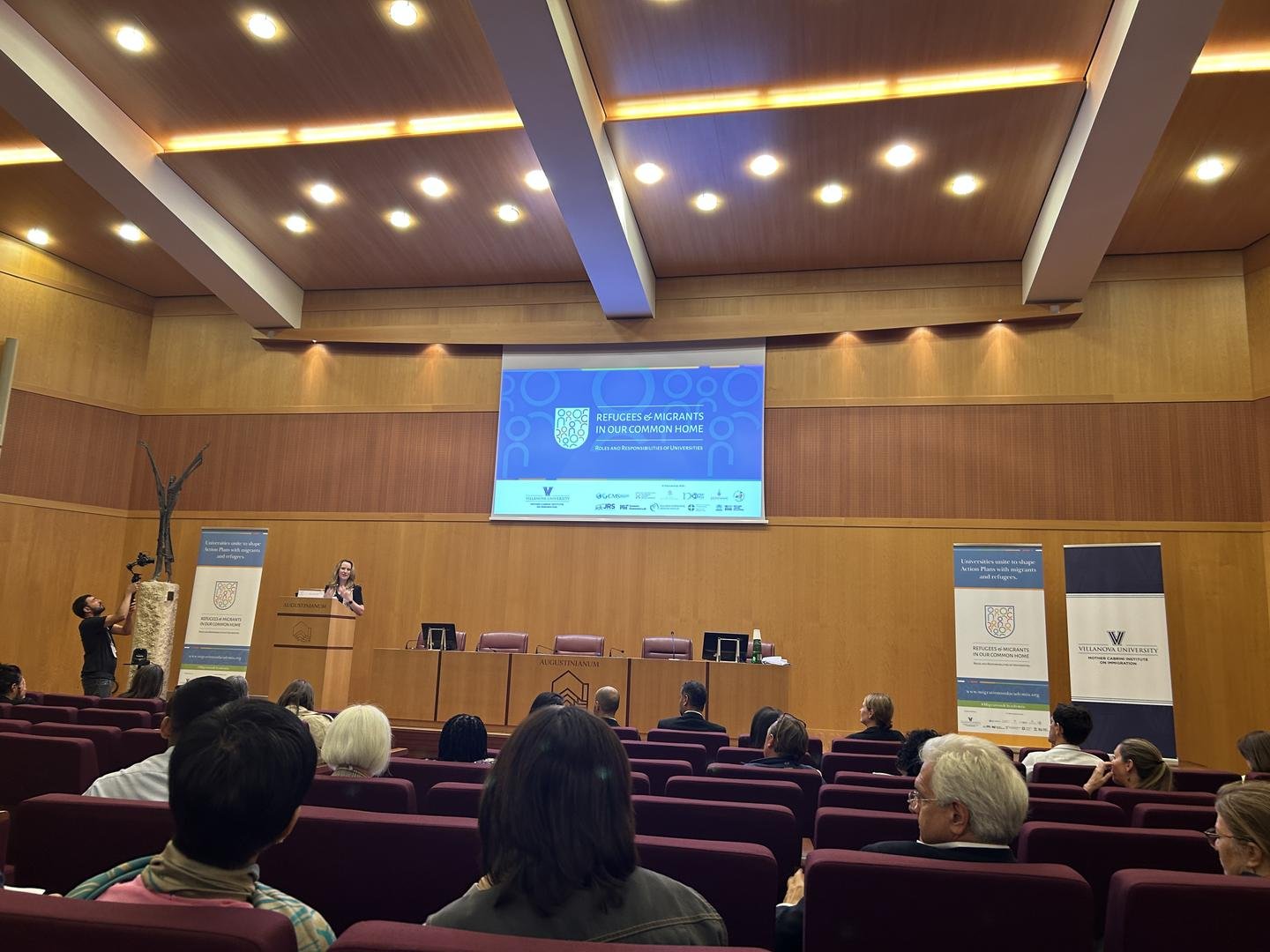
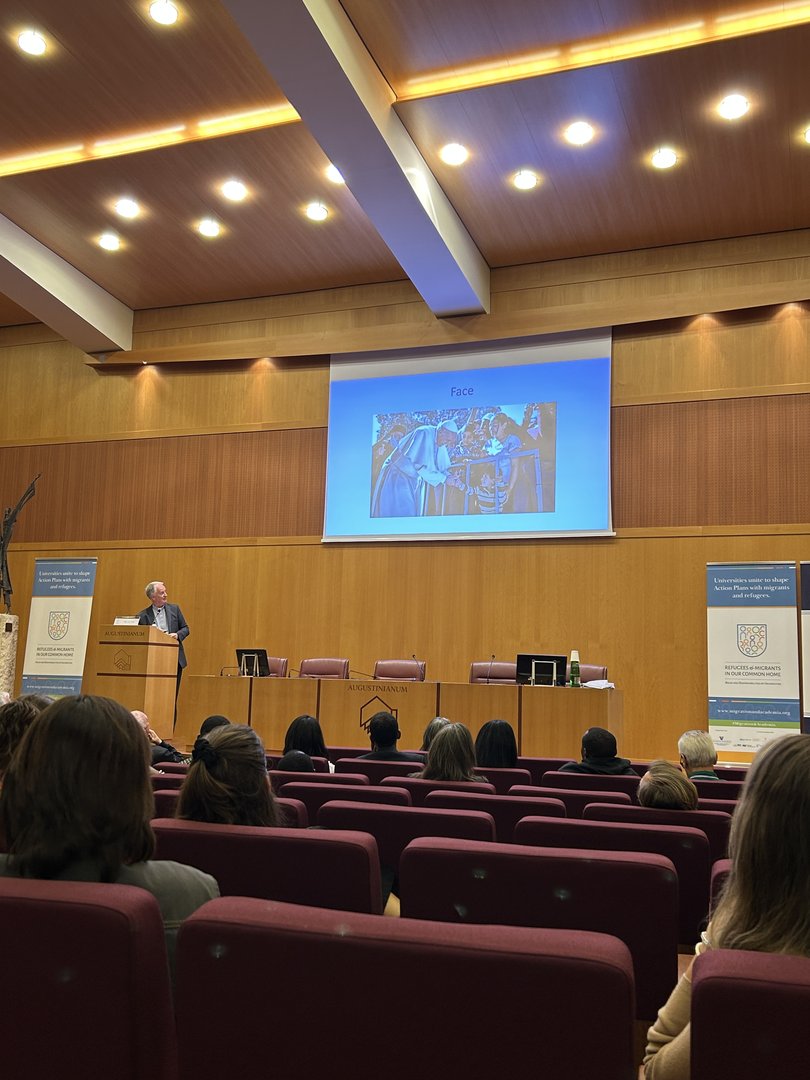
There were many testimonies in the parallel sessions we attended in the afternoon, also in the Aula Minor:
Ip Kim Ching Aidan, "Refugee Children: Our Future and Our Responsibility"; Adelia Dannus, "UCT Welcomes: Formation, Advocacy, Research for Migrant Dignity"; Veronica de Sanctis and Julia Krhebtan-Hörhager, "Migration, Women, and War: Ukrainian Women in Italy"; Maria D. Bermudez, "20 Years of Unaccompanied Child Migrants: The Future of the Voiceless"; Hung Jackie, "Refugee Children: Our Future and Our Responsibility"; Juan Joffret Smith Malca Alva, "Impact and Improvements in the Immigration Control Process in Peru." These sessions discussed technology, learning and educational difficulties for children, citizenship, food, and the safety and stability of migrants and refugees in certain circumstances.
On the evening of October 2, the film Cabrini was screened.
On the third day, Sr. Pietrina Raccuglia MSC joined the other sisters.
At the end of the third day of meetings, there was the unveiling and blessing of the sculpture of Mother Cabrini by artist Timothy Paul Schmalz. Present at this moment of thanksgiving and blessing was the Superior General, Sr. Maria Eliane Azevedo Da Silva.
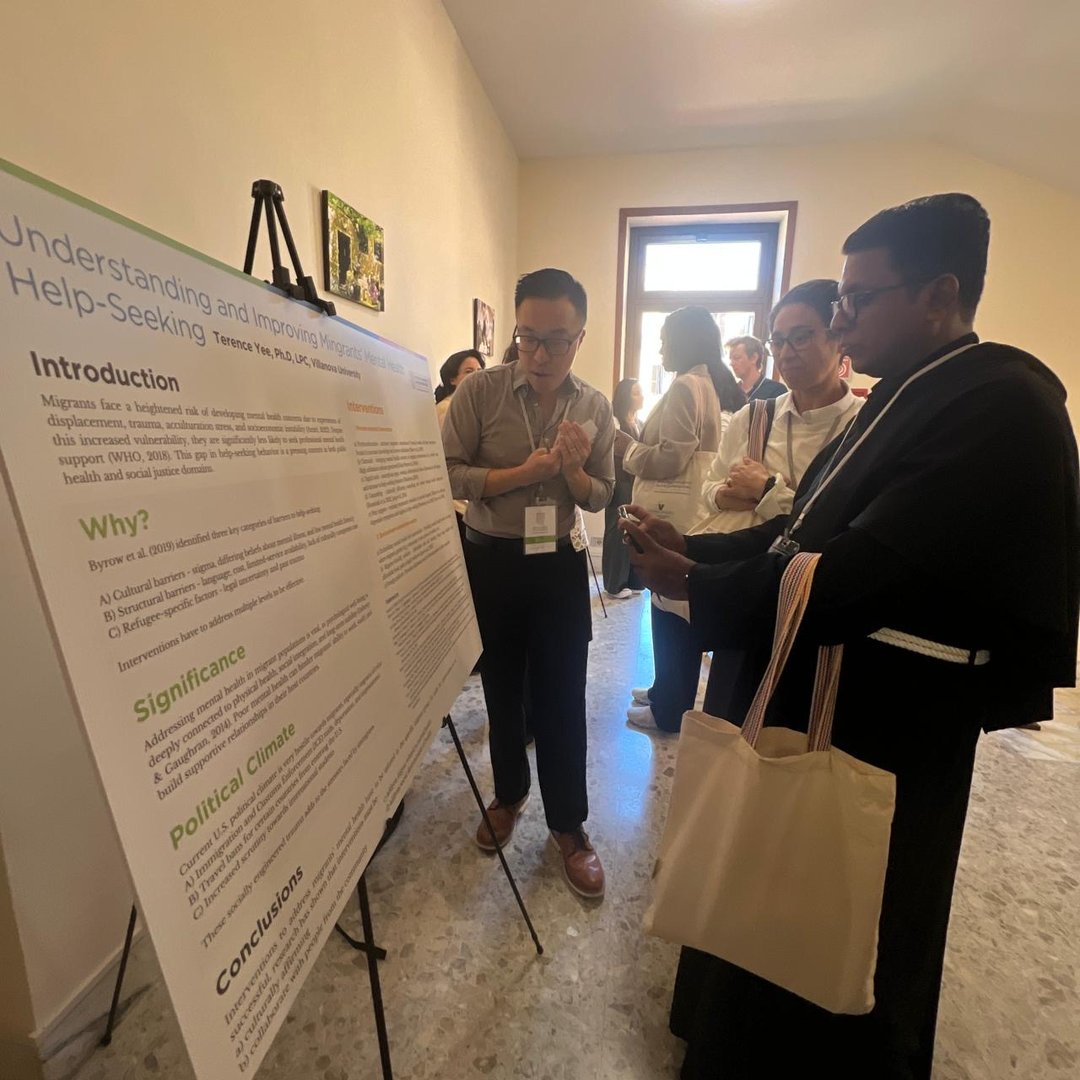
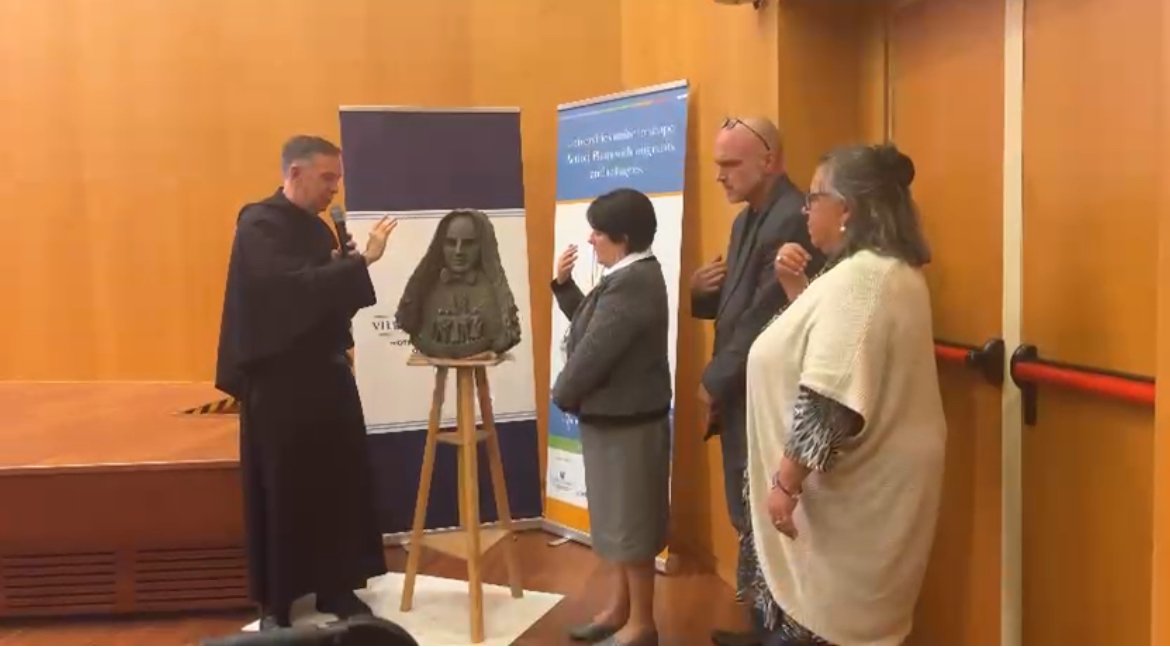
COMMENTS